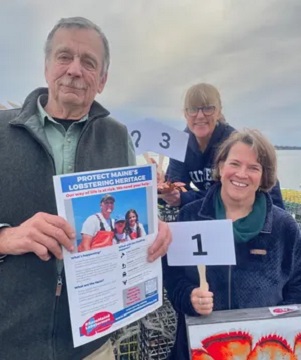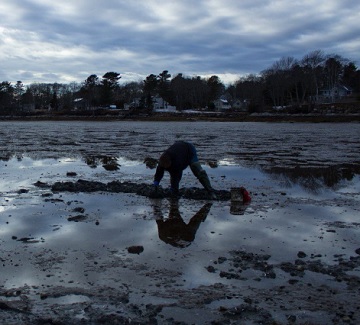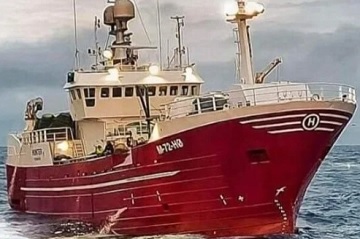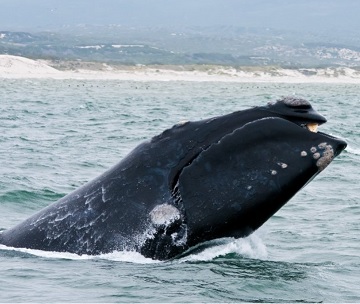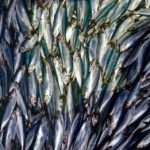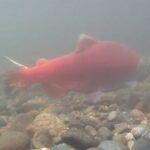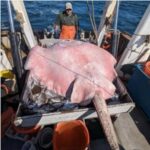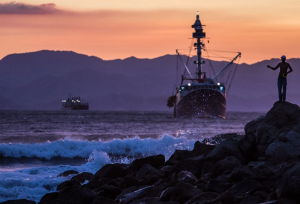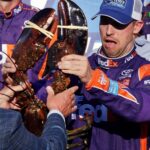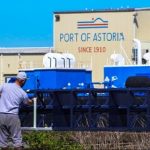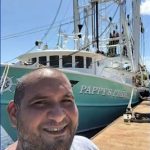Author Archives: borehead - Moderator

Mother Jones Joins the Anti-Maine Lobster Bandwagon
Mother Jones magazine, a cornerstone of the progressive establishment, ran a lengthy piece today entitled: “To Save Whales, Should We Stop Eating Lobster?” The 2,300-word article can be seen as a reconsideration of the radical environment push to “red list” and otherwise boycott the iconic Maine fishery, and it included some surprise praise for the industry from a federal regulator. But the Monterey Bay Aquarium, sponsors of the left-wing group Seafood Watch, which red-listed the Maine lobster as non-sustainable last summer, is pressuring NOAA to come down harder on the lobster fishery. >click to read< 07:52
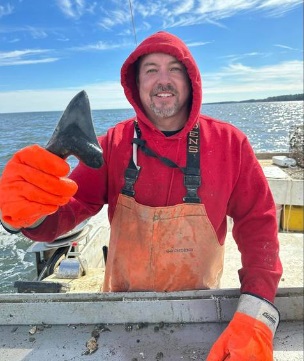
Fisherman finds huge megalodon tooth in oysters pulled from Maryland’s Chesapeake Bay
Another ancient shark tooth has been found along Maryland’s Chesapeake Bay, only this time it’s even bigger. The 5.5-inch megalodon tooth came out of the bay Feb. 10 hidden in a load of oysters, according to Stephen Rollins, captain of the fishing boat Undertaker. That makes the tooth about a half-inch longer than the one found Christmas Day by a 9-year-old girl at Maryland’s Calvert Cliffs State Park. >click to read< 21: 52
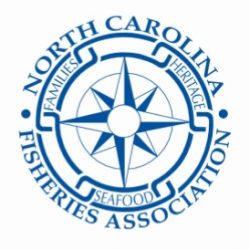
North Carolina Fisheries Association Weekly Update for February 20, 2023
The following public comments were sent to several members of the NC Marine Fisheries Commission by Glenn Skinner, Executive Director of the NCFA, also, The North Carolina Marine Fisheries Commission (MFC) is meeting this week to vote on a supplement to the current Striped Mullet Fisheries Management Plan,,, >click to read the weekly update< 17:55
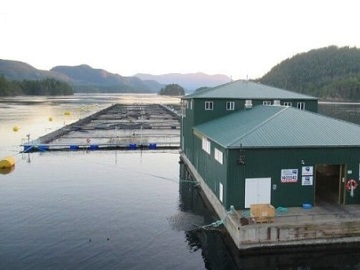
Canada Shuts Down 15 Fish Farms in B.C., Citing Risks to Wild Salmon
After years of concerns over the impact of aquaculture on wild sockeye salmon, Canada’s fisheries department has decided not to renew the operating permits of 15 Atlantic salmon farms in an environmentally sensitive area of British Columbia. In a news release, Fisheries Minister Joyce Murray noted that B.C.’s salmon runs are in “serious, long-term decline,” and some are at risk of collapse if action is not taken. Ten years have passed since the Cohen commission’s report, and more recent research indicates that the diseases associated with salmon-farming may have an impact on wild salmon in general and on Fraser River salmon smolts in particular. >click to read< 16:00

Opinion: Mad Max, where are you now that we need you? By Joel Hovanesian
For decades, Richard Max Strahan has fought for and succeeded many times and was front and center in his quest to save the severely endangered right whales. He was a very outspoken critic of the commercial fisherman and the fishing industry in general, claiming that they were responsible for the dwindling number of whales along the Atlantic seaboard. Your actions and ideas have helped pave the way for many regulations that possibly helped this iconic animal, the jury’s still out on that. Regulations that cost millions of dollars to implement. Today, the right whales and all marine life for that matter are under assault from a much more sinister threat. Ocean wind farms. >click to read< 13:34
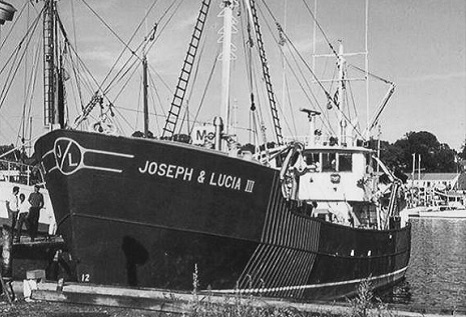
Risking it all in the Blizzard of ’78
In early February 1978, the Joseph & Lucia III had been fishing for about a week. Despite storm warnings, Capt. Gaetano “Tom” Brancaleone decided to continue fishing. His crew of seven included his brother and engineer, Antonio “The Chief” Brancaleone; first mate Frank D’Amico; cook Gil Roderick; fish hold man Gaspar Palazola; and deckhands Joe Charlie Brancaleone and Santo Aloi. At the tail end of the blizzard, after days of worry — “we could just look out the window to see the wind whipping up snow drifts 7 or 8 feet high,” recalled Tom — the family finally received a call on the radio. The Joseph & Lucia III had made it! But Tom now needed to get to the Boston Fish Pier to help lump (unload) the boat. >click to read< 10:58
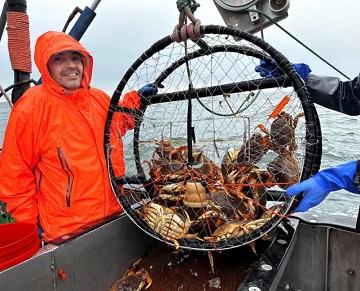
Dungeness crab at $5.99/lb. Nice! But crab fishers get $2/lb. Tough deal.
Remember a year ago, and the $18.99 up to $24.50 a pound prices? When you hear about a “market correction,” here it is in a dramatic display: a plunge of two-thirds or more. There are plenty of reasons why. For the Dungeness crab fishers, a number of them small operators, it’s tough days. They’re getting $2 a pound, maybe $2.25 a pound wholesale for the crabs. In last winter’s boom times they were getting $5.50 a pound from processors. “I haven’t seen this low a price in over a decade. It’d probably be cheaper not to fish. But we can’t not fish, if that makes sense. We have to keep making our payments or we’ll end up in a loss,” says Jennifer Custer, who does the bookkeeping while her husband, Chuck Custer, runs their 46-foot fishing boat, the Miss Kathleen, out of Westport. >click to read< 09:43
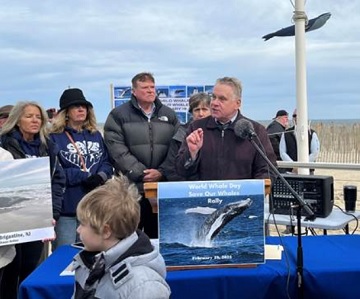
“Save Our Whales” Rally on “World Whale Day” in Point Plesant Over Concerns of Recent Whale Deaths
Rep. Chris Smith (R-Manchester) called for immediate answers from the Biden Administration and Governor Murphy to the growing questions raised by him, county and local officials, environmental leaders, and concerned Jersey Shore residents over the massive offshore wind projects along the New Jersey-New York coastline in light of the recent unprecedented surge in whale deaths. The rally comes less than a week after a dead whale washed ashore in Manasquan and just two days after another dead whale washed ashore in New York, marking the ninth and tenth whale deaths in the area since early December. Photos, >click to read< 08:54
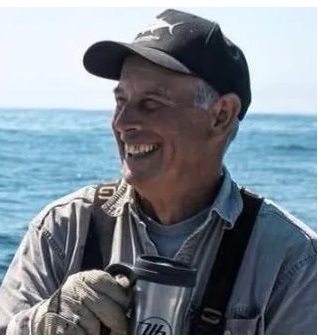
Benefit to support Orr’s Island lobsterman
Orr’s Island lobsterman Mark Wilson suffered a stroke recently while at Massachusetts General Hospital in Boston. He received immediate care but remains hospitalized at Mass General. Wilson is well known in the Harpswell fishing community and a regular supplier of lobster to a variety of businesses, including Cook’s Lobster and Ale House on Bailey Island. To support Wilson and his family in their time of need, Cook’s, in partnership with the Orr’s and Bailey Islands Fire Department, will hold a benefit dinner on Tuesday, March 7. >click to read< for details with access to the gofundme page. 07:37
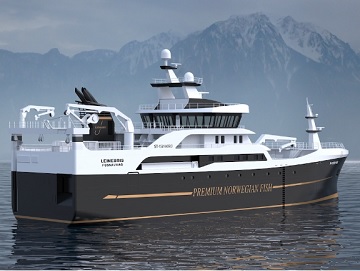
The New Multi-Role Leinebris
Longliner Leinebris was built to a Skipsteknisk design at the Tersan yard – and the Fosnavåg company is sticking with the same combination of yard and designer for its new vessel, scheduled to be delivered in 2025. What is different is that the new Leinebris isn’t a dedicated longliner like its predecessor but will be outfitted to be able to switch between longlining, gillnetting and seine netting. This new vessel design gets an ST-158 designation, and it’ll be a vessel with a 64.90 metre overall length and a 15 metre beam, with double cargo decks, covered working decks and a moonpool for hauling static gear. The crew’s accommodation facilties will be of a very high standard. Photos, video, >click to read< 17:10
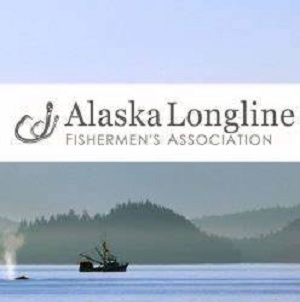
Fishing group accepting applicants for crew training program
The Alaska Longline Fishermen’s Association (ALFA), a Sitka-based fishing group, and partner organization Alaska Sustainable Fisheries Trust (ASFT) are seeking applicants for its crew training program. The program aims to provide young people an opportunity to gain experience in, as well as an understanding of, commercial fishing and its role in coastal communities, according to a release from the ALFA. Since 2015, more than 100 apprentices have been trained and placed on local fishing vessels in Southeast Alaska, and in late 2017 ALFA was awarded funds to get more boots on deck statewide. >click to read< 11:39
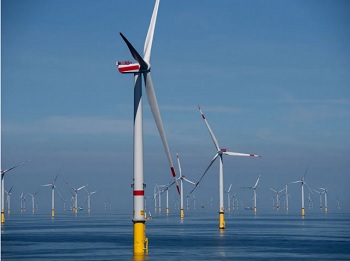
Whale deaths exploited in ‘cynical disinformation’ push against wind power, advocates say
Efforts to stop wind turbines off the Atlantic coast have a new mascot: the whale. A dozen New Jersey beach town mayors and several other groups now argue offshore wind power activity could be the cause of recent whale deaths and wind projects must be stopped while scientists investigate. But those most vocal about their concern have been silent in recent years as whale strandings surged along the East Coast. Wind energy supporters and whale advocates say these groups and politicians appear to be using whales as pawns. >click to read< 10:17
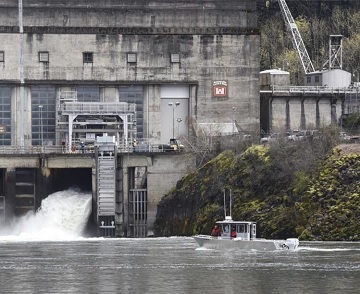
Sea lions threaten Northwest’s salmon – Pinnipeds eating thousands of at-risk fish in Columbia River
Decadeslong efforts by state and tribal agencies have slowly curbed sea lion populations in the region, yet officials still consider the pinnipeds a threat to at-risk salmon populations in the Columbia River. Between August 2021 and May 2022, officials estimate, more than 7,000 fish in the Bonneville Dam tailrace were killed by Columbia River sea lions, according to the Portland U.S. Army Corps of Engineers’ 2022 predation report. This totals about 12.4% of the salmon run accounted for during the agency’s observation period. Dozens of sea lions congregate at the dam in the fall, winter and spring. They feast on chinook, steelhead and coho salmon, as well as sturgeon and other fish. Spring chinook salmon were disproportionately affected, accounting for roughly 4,400 of the 7,000 fish killed. >click to read< 07:55
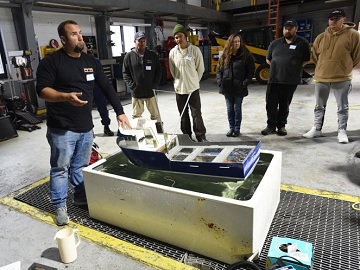
Stability class aims to keep fishing vessels and crews upright
The Burlington-based nonprofit Fishing Partnership Support Services came to Coast Guard Station Gloucester on Harbor Loop to give 13 people who risk their lives at sea to make a living training on how to best keep their boat stable while fishing. Some local commercial fishermen traded a day on the water for a morning in the classroom Friday as they learned from instructors the importance of removing ice from the decks and rigging to prevent raising a boat’s center of gravity, making sure deck scuppers are clear to allow water to drain, preventing loads or equipment on deck from shifting rapidly, and battening down hatches to make sure water cannot get below deck. >click to read< 14:55
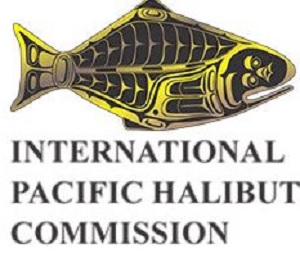
Commission cuts halibut limits across Alaska, Canada
The International Pacific Halibut Commission adopted its annual catch limits for halibut in 2023 from California to the Bering Sea at its meeting Jan. 27. Coastwide, the total constant exploitation yield, a term for how many total halibut longer than 26 inches are removed from the population, regardless of reason, is just shy of 37 million pounds, a 10% drop from 41.2 million pounds last year. Every regulatory area received a cut except for 2A, which covers California, Oregon and Washington. Area 3A, which covers the central Gulf of Alaska, and area 4A, which covers the eastern Aleutians, saw the largest cuts at 17% each. Southeast Alaska only saw a 1% cut, while the western Gulf, western Aleutians and central Bering Sea each saw 6% cuts. The Canadian coast saw a 10.3% cut. >click to read< 11:50
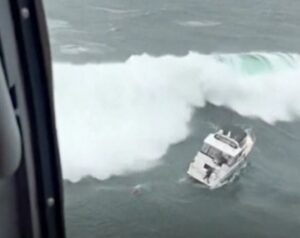
Coast Guard swimmer describes rescue of alleged Ore. yacht thief and ‘Goonies’ prankster
On the morning the U.S. Coast Guard in Astoria received a frantic mayday call from a yacht sinking near the treacherous mouth of the Columbia River, John “Branch” Walton was in his fifth and final day of advanced training as a rescue swimmer. Walton and his classmates leapt at the chance to respond. But it was a quick game of rock-paper-scissors that settled which swimmer would plunge into the churning, frigid waters nearby. Walton won. He was the least experienced of the bunch. Unbeknownst to the 22-year-old who learned to swim only after joining the Coast Guard a few years earlier, he’d soon execute a very difficult rescue seamlessly. And he would be thrust into the national limelight as millions viewed video of his first real-world rescue, taken from a camera mounted to the Coast Guard helicopter that flew him to the imperiled boater. >click to read< 10:29

The last fishermen of Castletownbere?: ‘We are in extinction mode’
“I suppose it was death by a thousand cuts,” Jason Sheehan says from his upstairs office on the harbour. Outside, it’s squally, leaden-skied, and the afternoon holds a children-still-at-school feel. He wears a grey hoodie and a small cut on his nose – a souvenir from a recent fishing trip in the Hebrides. He is one of the younger fishermen in the community. “Yeah. A hundred per cent. If I had my time back, there is no way on God’s earthly hour I’d have gone fishing. Now, I have great childhood and teenage memories but the way the job has gone… it is just horrible, like. Every day – and I mean every day – there is a drama. There is somebody on your case about something. Fuel hikes, quota counts, additional red tape, lack of young local men going fishing is a big one. And that boils down to the fact that the money is not in the job anymore. If you go back, the money at sea was probably five times what it was on shore. Now it is about even. There was a reward for the effort. >click to read< 08:24
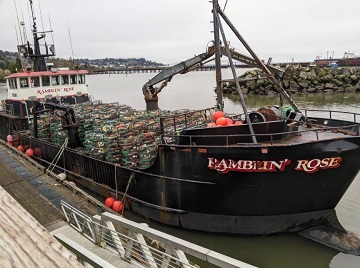
Crab fishermen weather a bruising season
It was a dream season for Oregon’s Dungeness crab fishery last year. Fishing began on the traditional Dec. 1 opener for the first time in years. Domoic acid, a marine toxin that has hampered the valuable commercial fishery time and again in recent years, was almost nowhere to be seen in Oregon or Washington state waters. “Last season, everything that could go right went right,” said Tim Novotny, executive director of the Oregon Dungeness Crab Commission. “And this year — I don’t know if it’s been completely the opposite, but it’s been close.” >click to read< 07:22
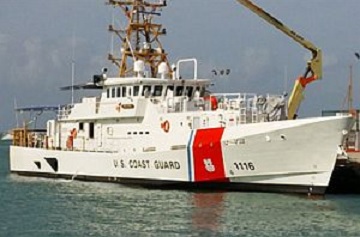
USCGC Winslow Griesser Winslow Griesser’s commanding officer relieved of command
Lt. Cmdr. Benjamin Williamsz was relieved of duties as the commanding officer of USCGC Winslow Griesser (WPC 1116), Friday. Rear Adm. Brendan C. McPherson, commander of the Seventh Coast Guard District, effected the relief due to a loss of confidence in Williamsz’s ability to effectively command the cutter. Williamsz was administratively reassigned to shore duty at Coast Guard Sector San Juan immediately following a collision at sea on Aug. 8, 2022. Cutter Winslow Griesser and the fishing vessel F/V Desakata collided while underway off the coast of Dorado, Puerto Rico, resulting in the death of one of the Desakata crewmen, injury to the other, and the loss of the fishing vessel. No Coast Guard personnel were injured in the collision. >click to read< 18:58

A new push to stop NJ offshore wind development
As debate continues over what is causing so many dead whales to wash ashore along the New Jersey and New York coastline, New Jersey Congressman Chris Smith, R-4th District, has introduced legislation requiring what he terms “an immediate, comprehensive investigation” into the environmental approval process for offshore wind projects. Meanwhile, New Jersey Rep. Jeff Van Drew, R-2nd District, announced on Friday in a statement that he will be holding a hearing on March 16 regarding offshore wind projects. The time and location were not available at the time of his announcement. >click to read< 16:19
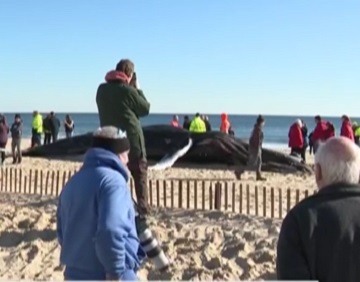
Save The Whales rally planned at Point Pleasant Beach after 9th whale found dead
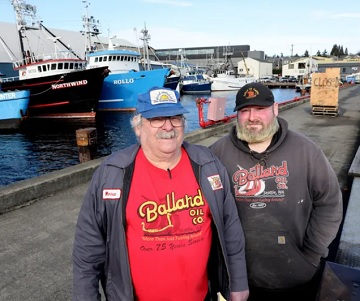
Ballard Oil closes after 85 years in Seattle, where oil and water no longer mix
Since 1937, Ballard Oil had been a fixture on the Lake Washington Ship Canal just east of the locks, providing fuel, lubricants and a few parts to Seattle’s commercial fishing boats, tugs and other vessels. Warren Aakervik Jr., 79, the second of four generations to run the company, cites a long list of reasons for the closure. Among them, costly regulations, rising taxes, a shortage of workers, a dwindling customer base and, most famously, the possibility that the city of Seattle might run the Burke-Gilman Trail though Aakervik’s industrial backyard. “It’s death by a thousand cuts,” says Aakervik as he stands with his grandson, Brandon Millard, on the company’s now-deserted fueling dock. “You keep on, keep on, keep on — and then finally, you just say, ‘Why am I beating my head against the wall?’” >click to read< 09:12
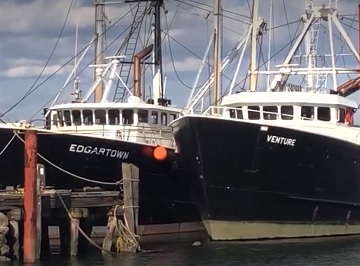
‘This is the war’: New Bedford at center of conflict between fishing, wind industries
New Bedford is the top commercial fishing port in the country, but it’s also emerging as an epicenter of conflict between the fishing industry and the growing wind industry. “This is the war, and we’re going to lose,” said Cassie Canastra, director of operations at Base Seafood, an electronic seafood auctioning company that her father and uncle founded in 1994. Canastra called it “defeating” to watch various wind farm projects expand into vital fishing grounds. New Bedford Mayor Jon Mitchell said he wants the city to be both the top fishing port and the No. 1 hub for wind energy nationwide, though he recognizes tensions between the two industries need to be addressed. Video, >click to read< 07:45
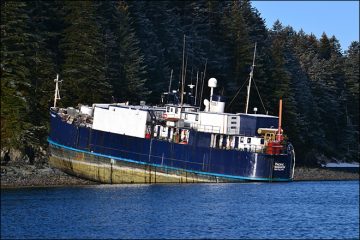
Seafood Processing Vessel’s Operator Continues to Expose Crews to a Bounty of Safety, Health Violations
Working in the Alaskan fishing industry – an occupation already regarded as one of the nation’s most dangerous – employees aboard the F/V Pacific Producer faced dangers purely of their employer’s making, an investigation by the U.S. Department of Labor and U.S. Coast Guard has found. An inspection by the department’s Occupational Safety and Health Administration was initially opened in July 2022 in Kodiak, Alaska, but was delayed when the F/V Pacific Producer – a 472-ton seafood processing vessel – departed the port. Through coordination with USCG’s Sector Puget Sound, a joint inspection resumed when the vessel arrived in Seattle in October. Inspectors found murky, brown water in the ship’s drinking water system; crew members being served expired food; water used to process fish leaking into dry food storage and the galley’s dining area; and other unsanitary conditions throughout the vessel. >click to read< 21:27
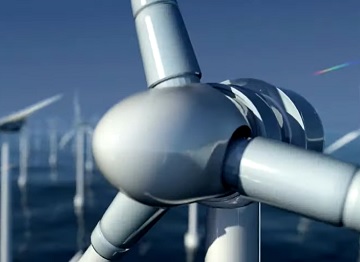
Offshore Wind: No measurable influence on climate change
Officially, offshore wind developers anticipate their projects will “have no measurable influence on climate change.” Knowing this, they offer a different rationale. In the “purpose and need” section of the draft environmental impact statement for Revolution Wind, Ørsted justifies the offshore wind project based on its ability to fulfill Rhode Island’s mandate for “renewable” energy. Meeting a political mandate differs rather significantly from combating climate change. Ørsted seems to understand this difference, but the public may not. No environmentally conscious individual wants to hear such depressing facts, including us. Despite numerous articles from pro-wind enthusiasts touting the promise of offshore wind, the carbon savings of these projects fail to justify their construction. >click to read this< 18:34
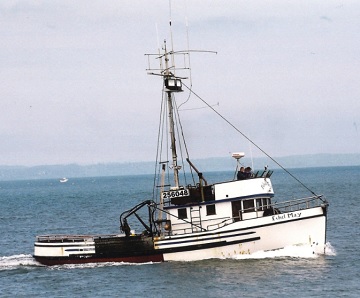
Community determined to find missing fisherman
More than one week has lapsed since the fishing vessel Ethel May capsized near Willapa Bay and left one crew member missing on Feb. 5, but the man still hasn’t been found despite a growing effort to do so by the community and Pacific County officials. The search is for Bryson Fitch, 25, crab fisherman, husband, and father of three young children. An outpouring of support for the family of Fitch, and for the effort to find him, has swept the community since the F/V Ethel May capsized. “There is a huge community support and volunteers all over the county,” said Pacific County Sheriff Daniel Garcia on Friday in an interview. “There are some combing the beaches on foot, there are some flying drones, there are some who have their personal boats that are searching areas and coastlines.” Photos, >click to read< 14:55






